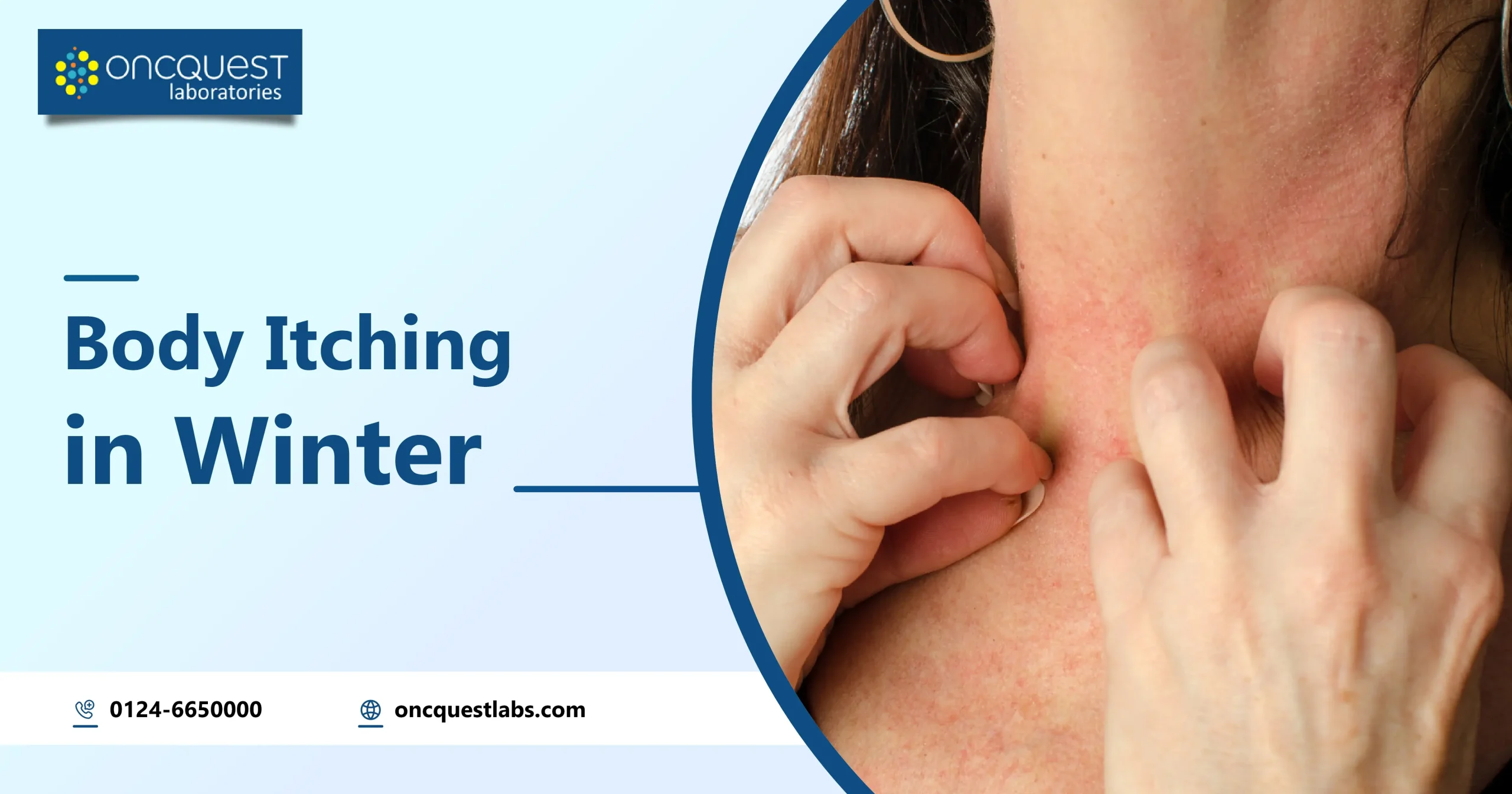Hey there, friends! If you’ve ever experienced that relentless itch down there, you know just how uncomfortable and irritating it can be. Don’t worry, though – you’re not alone, and we’ve got your back! In this blog, we’re diving into the world of quick and easy solutions to put an end to that itchiness right away.
It’s no secret that an itch in sensitive areas can disrupt your day and leave you searching for relief. The good news is, you don’t need a complicated fix. We’re focusing on straightforward tips and tricks that can help you say goodbye to the itchiness in no time.
From gentle home remedies to lifestyle adjustments, we’ve gathered a variety of options to suit different preferences. No need to stress – our goal is to provide you with practical advice that’s easy to follow. So, if you’re ready to reclaim your comfort and bid farewell to that pesky itch, stick with us as we explore quick and effective ways to bring immediate relief. Let’s make itching “down there” a thing of the past!
Contents
Causes of Vaginal Itching
Vaginal itching can be attributed to various factors, and understanding the causes is crucial for finding appropriate relief. Here are some common reasons behind vaginal itching:
1. Yeast Infections: Overgrowth of yeast, particularly Candida, can lead to itching. Factors like antibiotics, pregnancy, or a weakened immune system may contribute to this.
2. Bacterial Vaginosis: An imbalance in the normal bacteria of the vagina can cause itching. It’s not a true infection but rather a shift in bacterial composition.
3. Irritants: Exposure to irritants like harsh soaps, scented products, or synthetic fabrics can lead to vaginal itching.
4. Sexually Transmitted Infections (STIs): Infections such as trichomoniasis, genital herpes, or chlamydia can cause itching, along with other symptoms.
5. Hormonal Changes: Fluctuations in estrogen levels, common during menopause or pregnancy, can result in vaginal dryness and itching.
6. Allergies: Allergic reactions to certain products like latex, spermicides, or even laundry detergents can cause vaginal itching.
7. Skin Conditions: Conditions like eczema or psoriasis can extend to the genital area, causing itching.
8. Poor Hygiene: Inadequate personal hygiene practices can contribute to vaginal discomfort and itching.
If you’re experiencing persistent or severe itching, it’s essential to consult with a healthcare professional for an accurate diagnosis and appropriate treatment.
Symptoms of Vaginal Itching
Vaginal itching can manifest with various symptoms, indicating different underlying causes. Here are common signs associated with vaginal itching:
1. Itching or Irritation: Persistent itching in and around the vaginal area is the primary symptom.
2. Redness and Swelling: The skin may appear red and swollen due to irritation or inflammation.
3. Abnormal Discharge: Changes in vaginal discharge, such as an increase, unusual color, or a strong odor, may accompany itching.
4. Burning Sensation: Some individuals may experience a burning or stinging sensation, especially during urination.
5. Pain or Discomfort: Vaginal itching may be accompanied by pain or discomfort, particularly during sexual intercourse.
6. Rash or Sores: In some cases, itching can lead to the development of a rash or sores in the genital area.
7. Dryness: The skin around the vagina may feel dry and lacking in moisture.
8. Unpleasant Odor: Certain infections or conditions may cause a foul or unpleasant odor associated with the itching.
It’s important to note that these symptoms can vary based on the underlying cause of the vaginal itching. If you’re experiencing any of these signs persistently or if they worsen, seeking medical advice is recommended for proper diagnosis and treatment.
Treatment for Vaginal Itching
The treatment for vaginal itching depends on the underlying cause. Here are general guidelines that may help alleviate symptoms:
1. Antifungal Medications: For yeast infections, antifungal creams or oral medications prescribed by a healthcare professional can be effective.
2. Antibiotics: Bacterial infections like bacterial vaginosis may require antibiotics to restore the balance of vaginal bacteria.
3. Topical Steroids: In cases of inflammation or skin conditions, a healthcare provider may recommend topical steroids to reduce itching and redness.
4. Over-the-Counter Creams: Non-prescription creams or ointments designed for vaginal itching, often containing hydrocortisone, may provide relief.
5. Probiotics: In some cases, especially after antibiotic treatment, probiotics may help restore the natural balance of bacteria in the vagina.
6. Avoiding Irritants: Steering clear of potential irritants such as scented products, harsh soaps, or tight synthetic clothing can help prevent and alleviate itching.
7. Hygiene Practices: Maintain good personal hygiene, but avoid excessive washing, as it can strip the vagina of natural lubrication.
8. Stay Hydrated: Drink plenty of water to support overall health and hydration, which can contribute to vaginal well-being.
It’s crucial to consult with a healthcare professional for an accurate diagnosis and personalized treatment plan. Persistent or severe symptoms may require medical attention to rule out underlying conditions and ensure effective relief.
Home Remedies for Vaginal Itching
While it’s important to consult a healthcare professional for persistent or severe vaginal itching, some home remedies may provide temporary relief. Here are a few home-based approaches:
1. Warm Water Soaks: Taking warm baths or sitting in a warm water soak can help soothe itching and reduce inflammation.
2. Unscented Soaps: Use mild, unscented soaps or gentle cleansers to avoid further irritation. Harsh chemicals in scented products can worsen symptoms.
3. Cool Compress: Applying a cool compress or ice pack wrapped in a clean cloth to the affected area can provide relief from itching and swelling.
4. Probiotic-rich Foods: Incorporate yogurt with live cultures and other probiotic-rich foods into your diet. Probiotics can help maintain a healthy balance of bacteria in the vaginal area.
5. Cotton Underwear: Wear breathable cotton underwear to allow proper airflow and reduce moisture, which can contribute to itching.
6. Avoiding Irritants: Steer clear of potential irritants such as tight-fitting clothing, douches, and scented feminine hygiene products.
7. Coconut Oil: Applying a small amount of coconut oil to the affected area may provide relief due to its moisturizing and anti-inflammatory properties.
8. Garlic: Some people find garlic cloves inserted into the vagina overnight helpful for their natural antifungal properties. However, this should be done cautiously and under guidance.
Remember, these remedies are not substitutes for professional medical advice. If symptoms persist or worsen, it’s crucial to seek guidance from a healthcare provider for a proper diagnosis and tailored treatment plan.
How to Choose the Right Products?
Choosing the right products for personal care, especially for sensitive areas like the vagina, is essential to maintain health and prevent irritation. Here are some tips to help you make informed choices:
1. Fragrance-Free: Opt for fragrance-free or hypoallergenic products. Fragrances can irritate and disrupt the natural pH balance of the vagina.
2. Mild Cleansers: Use mild, pH-balanced cleansers specifically formulated for the intimate area. Harsh soaps can strip away natural oils and lead to dryness and itching.
3. Avoid Harsh Chemicals: Check product labels for harsh chemicals like parabens, sulfates, and dyes. These can be irritating and may disrupt the delicate balance of the vaginal environment.
4. pH-Balanced Products: Choose products that are pH-balanced to support the natural acidity of the vagina, helping to maintain a healthy environment.
5. Cotton Underwear: Wear breathable cotton underwear to allow proper airflow and minimize moisture, reducing the risk of irritation and infections.
6. Loose-Fitting Clothing: Opt for loose-fitting clothing, especially during physical activities, to prevent friction and promote ventilation.
7. Hydrating Creams: If experiencing dryness, consider using water-based, fragrance-free moisturizing creams or gels specifically designed for the intimate area.
8. Consult a Healthcare Professional: If uncertain about a product or experiencing persistent issues, consult with a healthcare provider for personalized recommendations based on your individual needs.
Remember, everyone’s body is unique, and what works for one person may not work for another. Pay attention to your body’s responses and make adjustments as needed. If problems persist, seek guidance from a healthcare professional for tailored advice.
How to Maintain Healthy Hygiene
Maintaining healthy hygiene is crucial for overall well-being, and it’s essential to pay special attention to intimate areas. Here are some tips for maintaining good hygiene:
1. Gentle Cleansing: Use a mild, pH-balanced cleanser specifically designed for the intimate area. Avoid harsh soaps and ensure thorough but gentle cleaning during showers.
2. Front-to-Back Wiping: Always wipe from front to back after using the toilet to prevent the spread of bacteria from the anal area to the vagina.
3. Avoid Douching: Douching disrupts the natural balance of bacteria in the vagina and can lead to irritation and infections. It’s generally not recommended.
4. Regular Changing of Underwear: Change underwear daily and choose breathable, cotton underwear to allow air circulation and reduce moisture.
5. Comfortable Clothing: Wear loose-fitting, breathable clothing, especially in hot and humid conditions, to prevent irritation and promote ventilation.
6. Hydrate: Drink plenty of water to maintain overall hydration, which contributes to healthy skin and mucous membranes.
7. Regular Showers: Take regular showers to keep the entire body clean, including the genital area. Be mindful not to overwash, as this can strip the skin of natural oils.
8. Practise Safe Sex: Use protection during sexual activity to reduce the risk of sexually transmitted infections (STIs). Maintain open communication with your partner about sexual health.
9. Regular Checkups: Schedule regular gynecological checkups to monitor reproductive health and address any concerns or issues promptly.
10. Healthy Diet: Eat a balanced diet rich in fruits, vegetables, and whole grains to support overall health, including the health of the reproductive system.
Remember, everyone’s body is different, so it’s essential to pay attention to your own needs and seek medical advice if you experience any unusual symptoms or discomfort. Regular checkups with a healthcare professional can help ensure your intimate health is in good condition.
When to Contact a Doctor?
Contact a doctor if you experience any of the following concerning symptoms related to vaginal health:
1. Persistent Itching: If vaginal itching persists or becomes severe despite home remedies or over-the-counter treatments.
2. Unusual Discharge: Changes in color, consistency, or odor of vaginal discharge, especially if it is accompanied by itching or irritation.
3. Painful Urination or Sex: Pain, discomfort, or burning sensation during urination or sexual intercourse.
4. Abnormal Bleeding: Unexpected vaginal bleeding between periods, after sex, or after menopause.
5. Rash or Sores: Development of a rash, sores, or lesions in the genital area.
6. Fever or Chills: Presence of fever, chills, or other signs of infection along with vaginal symptoms.
7. Recurrent Infections: If you experience frequent yeast infections, bacterial vaginosis, or other vaginal infections.
8. Swelling or Redness: Swelling, redness, or persistent irritation in the genital area.
9. Change in Odour: A noticeable change in the natural odor of the vagina.
10. Pain in Lower Abdomen: Persistent pain or discomfort in the lower abdomen or pelvic region.
You must seek medical attention promptly if you notice any of these symptoms. A healthcare professional can accurately diagnose, determine the underlying cause, and recommend appropriate treatment. Don’t hesitate to consult a doctor for personalized advice regarding your vaginal health.
Wrapping Up
As we wrap up, remember that maintaining vaginal health is a crucial aspect of overall well-being. Practicing good hygiene, choosing the right products, and seeking medical attention when needed are key components of self-care. If you have persistent symptoms or concerns, don’t hesitate to contact a healthcare professional for personalized guidance. Here’s to your health and comfort – take care!





